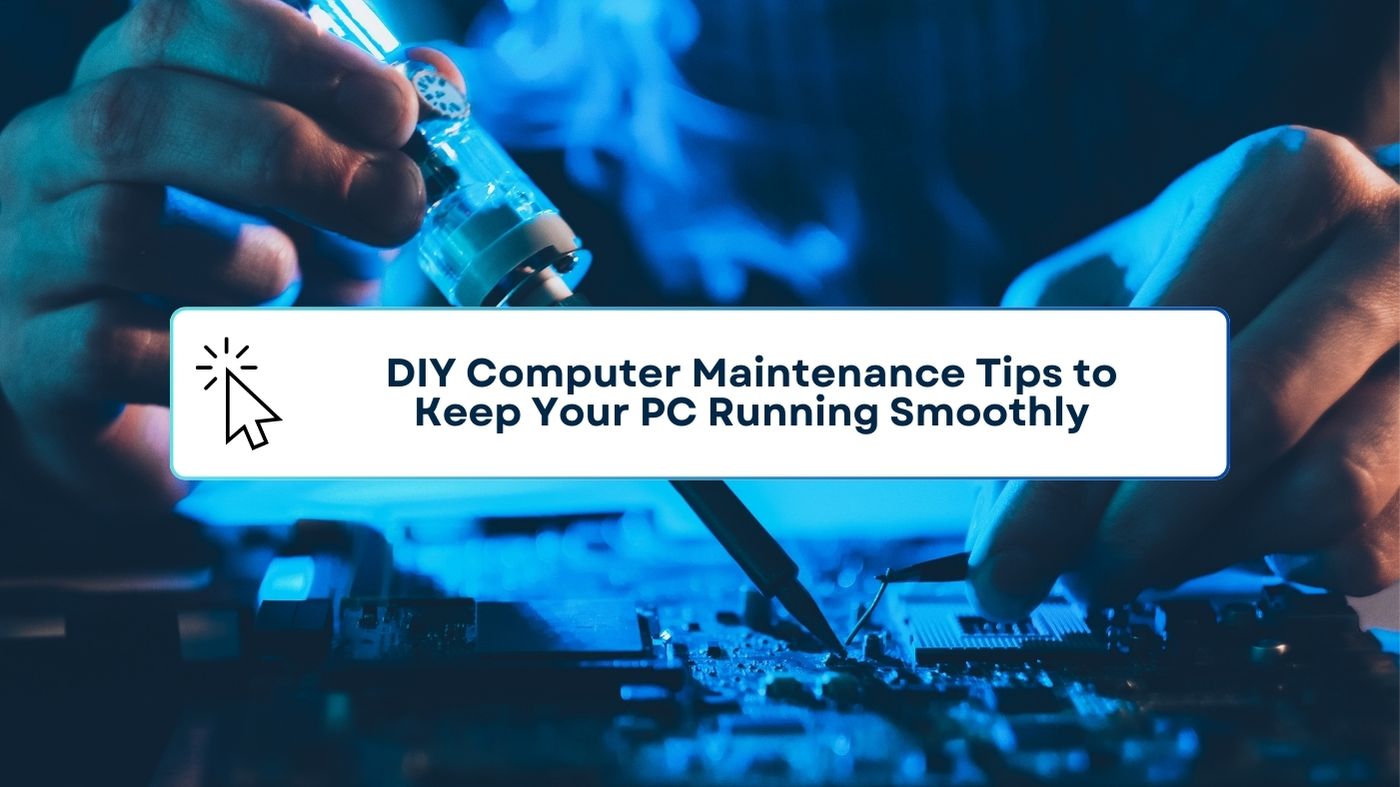Maintaining your computer is essential to ensure it runs efficiently and lasts longer. Regular upkeep can prevent many common issues, save money on repairs, and enhance your overall user experience. Whether you’re a beginner or a more advanced user, this guide will provide practical tips on cleaning hardware, managing software updates, and optimizing system performance.
Cleaning Hardware
Regular cleaning of your computer hardware is crucial to prevent dust buildup, which can cause overheating and reduce the lifespan of your components.
For Beginners:
- Turn Off and Unplug Your Computer: Always ensure your computer is turned off and unplugged before cleaning to avoid any electrical hazards.
- Use Compressed Air: Gently blow out dust from the keyboard, vents, and other crevices using a can of compressed air. Hold the can upright and avoid tilting it to prevent liquid from coming out.
- Wipe Down Surfaces: Use a microfiber cloth to wipe down the exterior surfaces of your computer, including the monitor, keyboard, and mouse. Slightly dampen the cloth with water or a mild cleaning solution if necessary.
For Advanced Users:
- Open the Case: If you’re comfortable, open your computer case to access the internal components. This allows for a more thorough cleaning.
- Clean the Fans and Heat Sinks: Dust buildup on fans and heat sinks can lead to overheating. Use compressed air to clean them carefully, ensuring you hold the fan blades in place to avoid damage.
- Reapply Thermal Paste: Over time, thermal paste between the CPU and heat sink can degrade. Reapplying thermal paste can improve heat dissipation and keep your CPU cooler.
Managing Software Updates
Keeping your software up to date is essential for security and performance. Software updates often include important patches, new features, and performance enhancements.
For Beginners:
- Enable Automatic Updates: Most operating systems and applications offer the option to enable automatic updates. This ensures you always have the latest security patches and improvements without having to manually check for updates.
- Check for Updates Regularly: If you prefer manual updates, set a reminder to check for updates regularly. This includes your operating system, antivirus software, web browsers, and other essential applications.
- Backup Before Updating: Before performing significant updates, back up your important data to prevent any potential data loss in case something goes wrong during the update process.
For Advanced Users:
- Update Drivers: Keeping your drivers up to date can improve hardware performance and compatibility. Use tools like Device Manager (Windows) or manufacturer-specific software to check for driver updates.
- Update BIOS/UEFI: Updating your BIOS/UEFI can bring improvements in hardware compatibility and system stability. Follow the manufacturer’s instructions carefully, as incorrect updates can cause system issues.
- Use a Package Manager: For users comfortable with command-line interfaces, using a package manager (e.g., Chocolatey for Windows, Homebrew for macOS) can streamline the process of updating and managing software.
Optimizing System Performance
Optimizing your system can significantly enhance its speed and responsiveness. This involves both software and hardware tweaks.
For Beginners:
- Uninstall Unnecessary Programs: Over time, you may accumulate software you no longer use. Uninstalling these programs can free up disk space and reduce background processes, improving system performance.
- Manage Startup Programs: Too many programs running at startup can slow down your computer. Use Task Manager (Windows) or System Preferences (macOS) to disable unnecessary startup programs.
- Run Disk Cleanup: Use built-in tools like Disk Cleanup (Windows) or Optimize Storage (macOS) to remove temporary files, system cache, and other unnecessary data that can clog up your hard drive.
For Advanced Users:
- Upgrade Hardware Components: Upgrading your RAM, installing a solid-state drive (SSD), or improving your graphics card can provide a significant performance boost. Ensure compatibility with your system before purchasing new components.
- Overclocking: If you’re familiar with the risks and benefits, overclocking your CPU or GPU can increase performance. Use overclocking software and monitor temperatures closely to avoid overheating.
- Use Advanced System Utilities: Tools like CCleaner, Defraggler, and Advanced SystemCare offer more in-depth system optimization features. Be cautious and ensure you understand the changes these tools make to your system.
Conclusion
Regular maintenance is key to keeping your computer running smoothly and efficiently. By following these DIY tips for cleaning hardware, managing software updates, and optimizing system performance, you can extend the lifespan of your PC and enjoy a better computing experience. Whether you’re a novice or a seasoned tech enthusiast, these practices will help you maintain a healthy and high-performing system.
If you encounter any issues beyond your expertise or need professional assistance, don’t hesitate to contact TN Computer Medics at +1 615 806 1535. Our experts are ready to help you with all your computer maintenance needs.

